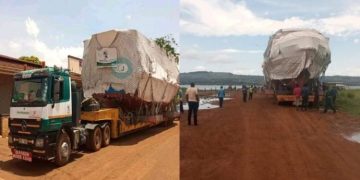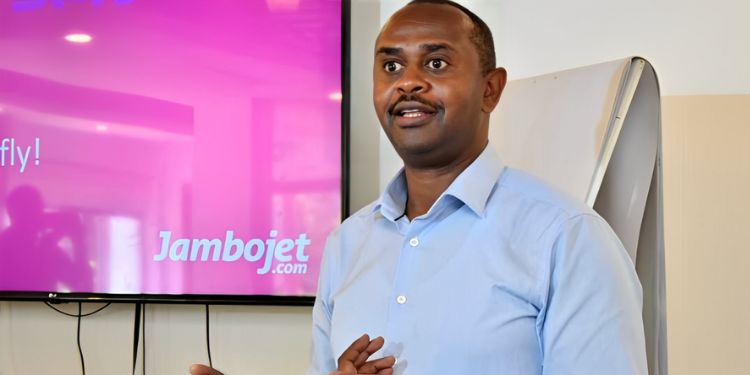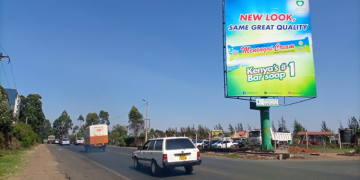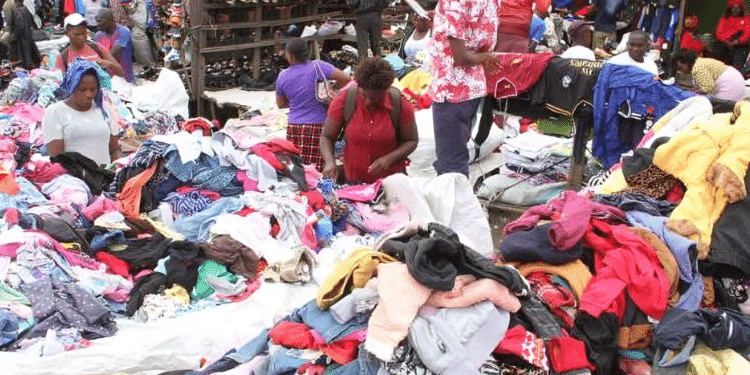Kenya’s vibrant second-hand clothing (SHC) industry, popularly known as Mitumba, has become a powerful engine for job creation and environmental sustainability, according to a report titled A Future Look at the Apparel and Footwear Industry in Kenya (2022–2037).
The report, released by the Institute of Economic Affairs Kenya in collaboration with the Mitumba Consortium Association of Kenya (MCAK), highlighted that Mitumba is not a threat to Kenya’s industrial ambitions but a vital part of a diversified economy that can thrive not only in Kenya but across the African continent.
It was also revealed that the consumption of used clothes in Kenya is elastic to pricing. As incomes increase, Kenyans tend to spend a lower share of their income on buying used clothes, especially when there are other alternatives.
In the main, the widespread demand for and use of secondhand clothing reflects lower income levels in Kenya.
The government collects at least $15,000 in taxes per container (22–24 tons) of second-hand clothes.
The sector has contributed Ksh12 billion per year in tax revenue in the form of import duty.
The Role of Mitumba in Boosting Employment
In 2023, imports totaled 197,000 tons (8,200 containers), yielding Ksh16 billion in tax revenue or Ksh1.3 billion monthly, surpassing tax revenue from the wine and spirit industry (Ksh11.5 billion in 2019).
“These taxes support government services like Universal Health Care (UHC) and investment in infrastructure,” Teresia Wairimu Njenga, Chairman MCAK said in the report.
Also Read: European Union to Ban Export of Mitumba to Africa
Kenya’s second-hand clothing and footwear industry is a job creation engine, employing over 2 million people, which is 10% of the extended labour force of 20,641,175 people in Kenya.
According to the report, Mitumba trade generates 7.58 jobs across the supply chain across East Africa for every ton of SHCs imported.
The SHC trade is particularly important for women and younger people, offering them jobs and opportunities to strengthen their household incomes.
Second-Hand Clothing Cuts Emissions, Saves Water in Kenya
The reuse and upcycling of garments through the Mitumba market significantly reduce textile waste and lower the fashion industry’s environmental footprint.
By keeping usable clothing in circulation instead of landfills, the second-hand trade advances circular economy goals and aligns with global sustainability efforts to curb waste and pollution.
Mitumba traders report that 98% of imported clothes are reusable, with only 2% donated or downcycled rather than incinerated items.
Buying 100 second-hand items avoids the production of 60–85 new garments, resulting in a 45% reduction in human toxicity (polyester/cotton trousers) and a 14% drop in global warming potential (cotton T-shirts).
Producing a new T-shirt causes nearly 70 times more environmental harm than reuse, saving over 3 kg of CO2 per reused garment. A new T-shirt uses 2,700 litres of water.
Also Read: Leading Sources of Kenya’s Mitumba
Based on Kenya importing c. 190,000 tons of second-hand clothes each year and replacing the need for the production of new clothing, mitumba trade saves 4.5 million tons of CO2 emissions.
It also reduces water consumption by 8.5 billion litres and reduces the use of harmful and dangerous chemicals including 242 tons of colour dyes 10,450 tons of synthetic fertilisers and 1,500 tons of pesticides & Insecticides.
Lead researcher for the report and CEO of the Institute of Economic Affairs, Kenya, Kwame Owino, said citizens and economies can gain the most when Mitumba and local manufacturing grow together.
“When we remove needless barriers, the combined strength of these sectors can create more jobs, more consumer choice, and more sustainable growth than if we stifle one in favour of the other,” he stated.
“It’s a win-win for our economy and hardworking families relying on affordable clothing. This is about smart policymaking grounded in evidence – leveraging the strengths of each segment rather than picking winners and losers.”
Follow our WhatsApp Channel and X Account for real-time news updates.












































































